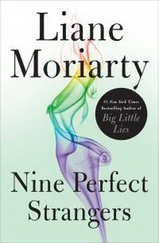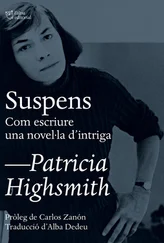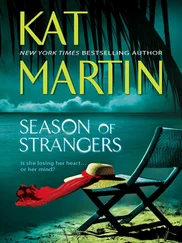“I’m almost done,” she called to him. “Why didn’t you come sooner?”
“I hurried,” he said awkwardly.
“You’ve been leaning against the house ten minutes.”
A sprig of watercress was floating away on the stream, and he sprang to rescue it. He felt like a possum, scooping it up. “I think I’ll take a job soon, Anne.”
She looked up, astoundedly.” A job? You mean with a firm?”
It was a phrase to be used about other architects, “a job with a firm.” He nodded, not looking at her. “I feel like it. Something steady with a good salary.”
“Steady?” She laughed a little. “With a year’s work ahead of you at the hospital?”
“I won’t need to be in the drafting room all the time.”
She stood up. “Is it because of money? Because you’re not taking the hospital money?”
He turned away from her and took a big step up the moist bank. “Not exactly,” he said through his teeth. “Maybe partly.” He had decided weeks ago to give his fee back to the Department of Hospitals after he paid his staff.
“But you said it wouldn’t matter, Guy. We both agreed we—you could afford it.”
The world seemed silent all at once, listening. He watched her push a strand of her hair back and leave a smudge of wet earth on her forehead. “It won’t be for long. Maybe six months, maybe a lot less.”
“But why at all?”
“I feel like it!”
“Why do you feel like it? Why do you want to be a martyr, Guy?”
He said nothing.
The setting sun dropped free of the trees and poured onto them suddenly. Guy frowned deeper, shading his eye with the brow that bore the white scar from the woods—the scar that would always show, he thought. He kicked at a stone in the ground, without being able to dislodge it. Let her think the job was still part of his depression after the Palmyra. Let her think anything.
“Guy, I’m sorry,” she said.
Guy looked at her. “Sorry?”
She came closer to him. “Sorry. I think I know what it is.”
He still kept his hands in his pockets. “What do you mean?”
She waited a long while. “I thought all this, all your uneasiness after the Palmyra–even without your knowing it, I mean—goes back to Miriam.”
He twisted away abruptly.“No. No, that’s not it at all!” He said it so honestly, yet it sounded so like a lie! He thrust his fingers in his hair and shoved it back.
“Listen, Guy,” Anne said softly and clearly, “maybe you don’t want the wedding as much as you think you do. If you think that’s part of it, say it, because I can take that a lot easier than this job idea. If you want to wait—still—or if you want to break it off entirely, I can bear it.”
Her mind was made up, and had been for a long while. He could feel it at the very center of her calmness. He could give her up at this moment. The pain of that would cancel out the pain of guilt.
“Hey, there, Anne!” her father called from the back door. “Coming in soon? I need that mint!”
“Minute, Dad!” she shouted back. “What do you say, Guy?”
His tongue pressed the top of his mouth. He thought, she is the sun in my dark forest. But he couldn’t say it. He could only say, “I can’t say—”
“Well—I want you now more than ever, because you need me now more than ever.” She pressed the mint and watercress into his hand. “Do you want to take this to Dad? And have a drink with him. I have to change my clothes.” She turned and went off toward the house, not fast, but much too fast for Guy to try to follow her.
Guy drank several of the mint juleps. Anne’s father made them the old-fashioned way, letting the sugar and bourbon and mint stand in a dozen glasses all day, getting colder and more frosted, and he liked to ask Guy if he had ever tasted better ones anywhere. Guy could feel the precise degree to which his tension lessened, but it was impossible for him to become drunk. He had tried a few times and made himself sick, without becoming drunk.
There was a moment after dusk, on the terrace with Anne, when he imagined he might not have known her any better than he had the first evening he visited her, when he suddenly felt a tremendous, joyous longing to make her love him. Then he remembered the house in Alton awaiting them after the wedding Sunday, and all the happiness he had known already with Anne rushed back to him. He wanted to protect her, to achieve some impossible goal, which would please her. It seemed the most positive, the happiest ambition he had ever known. There was a way out, then, if he could feel like this. It was only a part of himself he had to cope with, not his whole self, not Bruno, or his work. He had merely to crush the other part of himself, and live in the self he was now.
Thirty-one
But there were too many points at which the other self could invade the self he wanted to preserve, and there were too many forms of invasion: certain words, sounds, lights, actions his hands or feet performed, and if he did nothing at all, heard and saw nothing, the shouting of some triumphant inner voice that shocked him and cowed him. The wedding so elaborately prepared for, so festive, so pure with white lace and linen, so happily awaited by everyone, seemed the worst act of treachery he could commit, and the closer it drew, the more frantically and vainly he debated canceling it. Up to the last hour, he wanted simply to flee.
Robert Treacher, the friend of his Chicago days, telephoned his good wishes and asked if he might come to the wedding. Guy put him off with some feeble excuse. It was the Faulkners’ affair, he felt, their friends, their family church, and the presence of a friend would put a hole in his armor. He had invited only Myers, who didn’t matter—since the hospital commission, he no longer shared an office with him—Tim O’Flaherty, who couldn’t come, and two or three architects from the Deems Academy, who knew his work better than they knew him. But half an hour after Treacher’s call from Montreal, Guy telephoned back and asked Bob if he would be his best man.
Guy realized he had not even thought of Treacher in nearly a year, had not answered his last letter. He had not thought of Peter Wriggs, or Vic De Poyster and Gunther Hall. He had used to call on Vic and his wife in their Bleecker Street apartment, had once taken Anne there. Vic was a painter, and had sent him an invitation to his exhibit last winter, Guy remembered. He hadn’t even answered. Vaguely now, he remembered that Tim had been in New York and had called him to have lunch during the period when Bruno had been haunting him by telephone, and that he had refused. The Theologica Germanica, Guy recalled, said that the ancient Germans had judged an accused man innocent or guilty by the number of friends who came forth to vouch for his character. How many would vouch for him now? He had never given a great deal of time to his friends, because they were not the kind of people who expected it, but now he felt his friends were shunning him in turn, as if they sensed without seeing him that he had become unworthy of friendship.
The Sunday morning of the wedding, walking in slow circles around Bob Treacher in the vestry of the church, Guy clung to his memory of the hospital drawings as to a single last shred of hope, the single proof that he still existed. He had done an excellent job. Bob Treacher, his friend, had praised him. He had proven to himself that he could still create.
Bob had given up trying to make conversation with him. He sat with his arms folded, with a pleasant but rather absent expression on his chubby face. Bob thought he was simply nervous. Bob didn’t know how he felt, Guy knew, because however much he thought it showed, it didn’t. And that was the hell, that one’s life could so easily be total hypocrisy. This was the essence, his wedding and his friend, Bob Treacher, who no longer knew him. And the little stone vestry with the high grilled window, like a prison cell. And the murmur of voices outside, like the selfrighteous murmurings of a mob impatient to storm the prison and wreak justice.
Читать дальше












